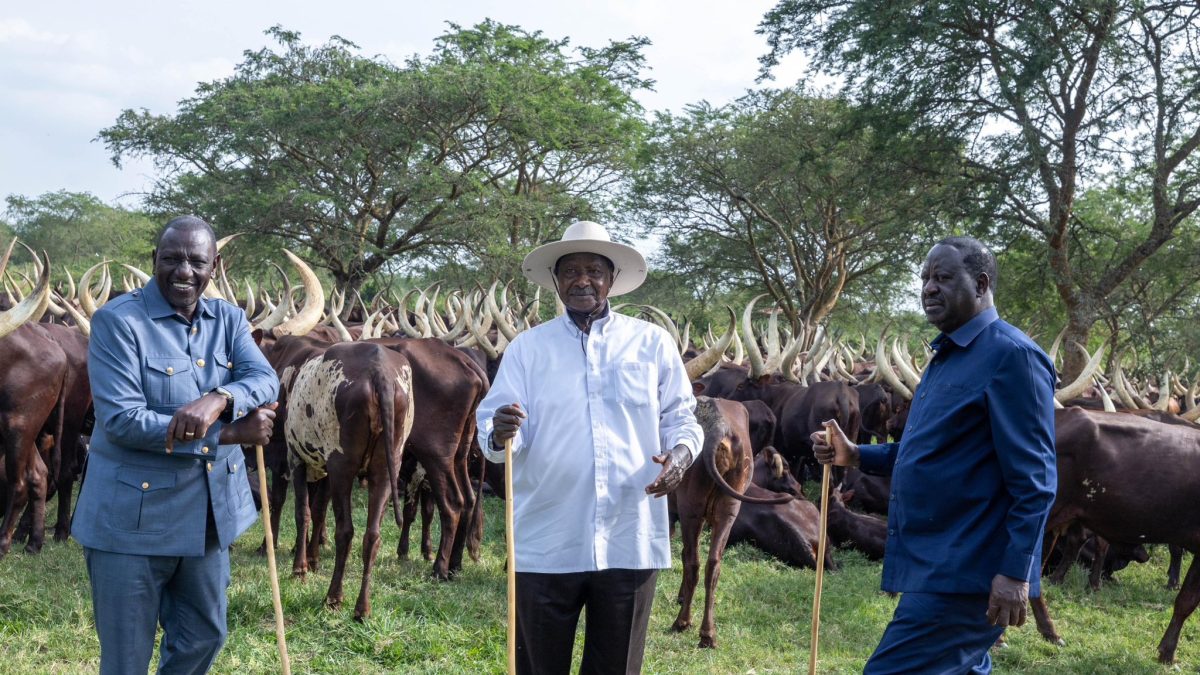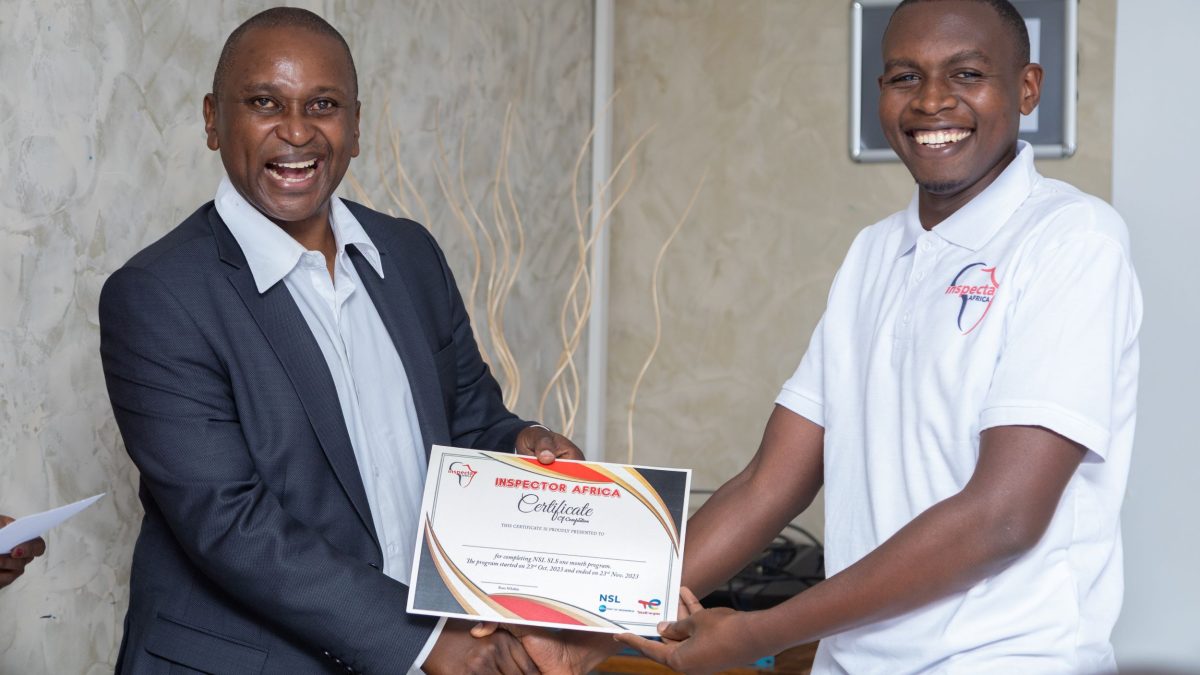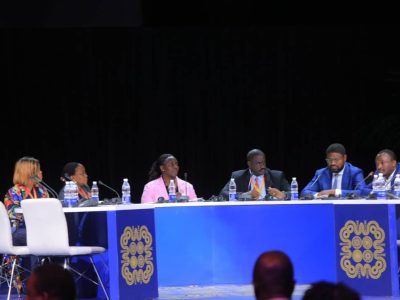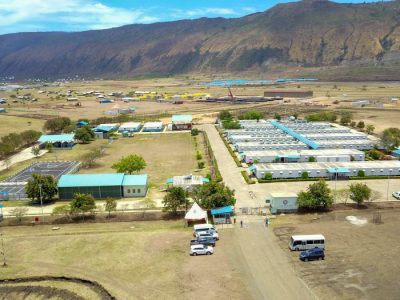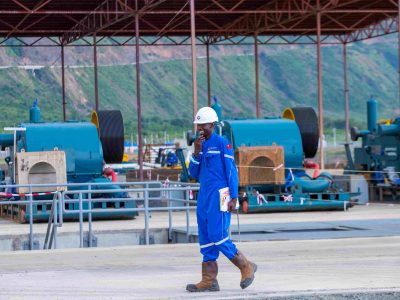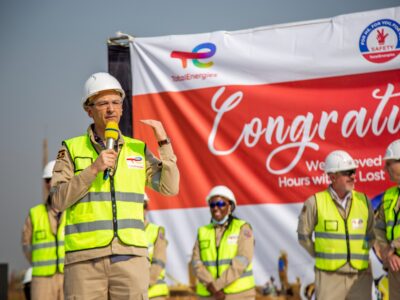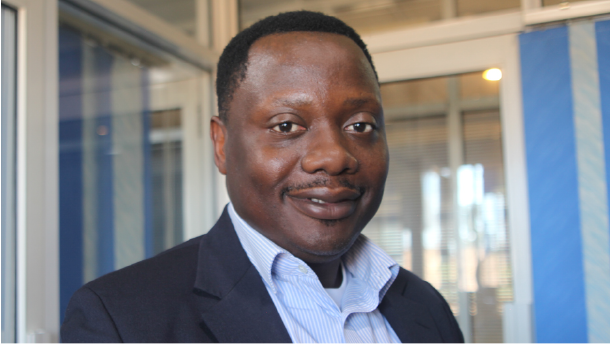
At the height of the oil and gas exploration period in Uganda 10 years ago, Threeways Shipping Services Limited was one of the biggest local companies operating in the industry. With revenue turnover of more than $30 million, the company was the embodiment of local resilience and might. And then exploration activities stopped. With the development stage taking longer than expected, Threeways faced trouble as financing dried up. Jeff Baitwa, the company CEO, takes us through the journey of falling from grace to grass, and recovering, to go back to the top:
How does the future of Uganda’s oil and gas industry look amidst the uncertainty brought about by the EU Parliament resolution?
As you know, we have just won some contracts; having followed a very painful period and also a very rigorous process.
Painful in the sense that oil and gas exploration business is often very risky and short-termed. Being a nascent industry, the local companies like ourselves always had to readjust to much higher global standards than we had been used to before.
Then TotalEnergies and CNOOC come into play after buying a stake in Tullow and we are forced to step up even more than had been the case with the initial entities that carried out the first exploration works.
So, the only way one could impress TotalEnergies and CNOOC was by demonstrating what one was capable of based on their standards and requirements since they were not willing to compromise – despite this being a 12 to 18 months activity.
So, a number of us invested heavily around that period, with the hope that there would be a shorter transition from exploration to where we are today – a whole eight to nine years since TotalEnergies and CNOOC came on the scene.
As a company, we have been lucky and fortunate. Thank God that we are participating.
I know the IOCs have really given us very stringent requirements in terms of respect of the environment, biodiversity and operational obligations, among others.
Hence, we feel that the IOCs have tried their best within their means to make sure that this project goes well.
On the other side, I have no visibility of the other activities like resettlements and the like. But from my interactions as a native (from the Albertine region), I have not heard any pushback in terms of what people expected and where they are.
Uganda and Tanzania are sovereign countries who are entitled to exploit their natural resources regardless of where they are found.
The best anyone can give is advice and maybe say, “please guys be mindful of this and that; take care of this, take care of that.” The governments and the IOCs are responsible enough and feel they have done well to address all the EU Parliament’s concerns.
I think any advice is welcome. What I have not yet understood as regards the EU Parliament resolution however is what exactly it intends to achieve.
The resolution says “hold on for a year and review the following things.” But this process has been ongoing for over 13 years, why was the EU watching and never proactive enough to intervene? Some of us who invested heavily have undergone 13 years of suffering, as the EU watches on in the same period.
By now the EU should be giving a report of its findings rather than suggesting another halt to operations. So, if you really are well-intentioned, why wait for the 11th hour to intervene? This looks like malice aforethought.
How painful has been this decade long wait for the development stage to materialize and what lessons have you learned?
Before the lull the demanding exploration period had been good for our balance sheet; with our turnover scaling over $30m at some point. But then there was a sudden dip in activity.
It is expected that after exploration and appraisal, the IOCs will require two to three years to submit their field development plans and the like but in Uganda’s case, a lot of events in a way conspired against this whole process.
When the field development studies commenced for instance, the oil price slumped and the IOCs stopped giving the project priority.
Also, at about the same time the government and the IOCs disagreed on taxation. So that period became characterised by negotiations and disagreements.
For the IOCs, there was no motivation to spend money on the project and speed it up. Yet on our side, after investing heavily as suppliers and subcontractors, it was getting unbearable.
Threeways had been trying to get ahead of the game, so we had hired and trained a large number of workers with plans of retaining them for as long as we could so that when the sector stabilized, we would be in pole position.
In hindsight, it was a terrible mistake because it came at a huge cost.
By the time we realized our mistake and started laying off workers, we had lost a lot of blood.
Our pain was fairly relieved by some contracts we won from the Isimba and Karuma hydropower construction projects. The capacity we had built over the years serving the oil industry helped us win these contracts.
Unfortunately, the returns from the electricity projects could not correspond to the financial model we had adopted (heavily influenced by the more lucrative oil industry), so we soon fell out because we could not agree on the pricing.
Like a nose-diving plane, we responded a little too late to the oil industry challenges then; as such we could not fully survive the crash landing in the end.
We hit financial distress; even experiencing receivership between 2016 and 2018. Since then, we have been gradually getting back into the game.
What contracts is Threeways handling currently; following the resumption of oil activities?
Currently we have two intra-field contracts with CNOOC and TotalEnergies.
The job is described as intra-field logistics, with our services including provision of lifting equipment and machinery of all categories from forklifts to big cranes plus transporting both personnel and equipment. There are different operational sites where this machinery is required.
We are fortunate that we have been hired by both companies.
Since these contracts are directly from the IOCs, they qualify as Tier I contracts; which I believe makes us the first local company with a Tier I contract. Combined both contracts are worth about $50 million over five years.
The other contract (Tier II) is from ZPEB – which involves transporting their first of three rigs from Mombasa to the Albertine basin. This particular rig will be used by TotalEnergies.
For the onshore freight forwarding contracts, we are still waiting for a call from the likes of McDermott.
How do the profit margins in the current development stage compare to the exploration phase ones?
It is important to appreciate the different dynamics at play right now. After the sustained Covid-19 lockdown Uganda’s oil project is just one of the first few activities attracting investment of this nature globally.
The world has been devoid of such big development activities and many of the global EPC (Engineering, Procurement and Construction) players have been looking for opportunities to kick-start their businesses.
Of course the IOCs are aware of that and have therefore been quite tight in terms of spending because many contractors are willing to charge less to get going again.
Naturally the margins are not as high as before because it has been quite competitive, this time around. Those who thought they would make a killing will be disappointed.
In Threeways’ case, a noticeable drop of 30 to 40 per cent in returns has been registered especially in regards to the hiring of our equipment.
And while we may charge more for shipping in cargo from Mombasa, the margins are also much lower as well because of the high fuel costs. Besides, many people have since joined the business and are willing to offer low charges to get hired. With low margins, we are forced to rely on volumes and probably on longevity of contracts.
Unfortunately, for many local players most of the opportunities lay within the short construction phase (about two to three years). As such, one needs to be strategic regarding the kind of contracts they pursue.
The more attractive contracts like waste management, intra-field services, camps services, maintenance or even drilling can last the entire lifecycle of the project.
From our perspective, unless the fundamentals change significantly, we do not expect better margins. Having said that, you are better off being in than out, since nothing is permanent and the dynamics could change for the better.
After several years of recovery, how is Threeways fairing?
We are now making strides financially and are able to perform and execute our contracts. The current contracts have been a game changer.
There are four things about attracting financing.
One is a steady stream of revenue. Number two, ‘Can you perform?’ What encompasses performance is experience, ability, systems and personnel resources. With the exception of experience and ability, the others are intrinsic; they cannot be avoided. Once those boxes are ticked then the financier will consider your “management” style.
So, accessing financing is very possible since we are ticking all the above boxes.
Have you considered joint venture (JV) partnerships to ease the financing challenges?
Threeways has a two-pronged approach to this. There are contracts we have taken on fully by ourselves and others that we have taken on under a JV arrangement.
The partnerships help us spread the risk especially considering our difficulties in the recent past. We do not want to take on too much risk capital.
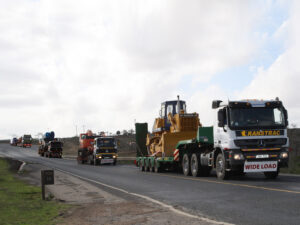
Threeways trucks on the road
What should local firms consider before entering into a JV arrangement; especially with the more powerful foreign companies?
Fundamentally a JV can have a number of advantages. The main question concerns structuring. This is where most Ugandan entities may have challenges since oftentimes they are dealing with more established international firms.
The beauty with our laws is that there is preference for participation-based JVs; where it is not about an entity. For instance when it comes to executing say a camp construction job, the local entity which is strong in plumbing or electrical works – focuses on only that.
The law talks of 48 per cent minimum local participation. This participation can be in the form of shareholding or in form of work.
The work-related JV is also called a non-incorporated JV. Unfortunately, many Ugandans do not appreciate this JV option.
If you go into a incorporated JV with the fairly established international companies with large balance sheets and all, you cannot be at par as they will be the ones spending a lot of their money and expertise; which will never be done to your benefit.
Threeways has participated in both non-incorporated JVs and also incorporated JVs. With incorporated JVs, if I have won the contract, it will entitle me to 50 per cent of the returns and my partner will bring 50 per cent in form of resources.
We currently are in a non-incorporated JV with Deugro Group (Swiss); where we have jointly bid for some logistics contracts.
Then we also have an incorporated JV with Grindrod Freight (South Africa).
What should the new Ugandan players coming into the oil business watch out for?
They have to know that executing these oil and gas contracts is not easy work.
Like I mentioned earlier, we are currently operating under significantly low margins. The terms are not that good.
Many businesses are used to being paid even before offering a service but this is not the case here; where some payments may take as much as 60 to 90 days to be done.
Aren’t these difficult payment dynamics affecting how one executes a contract?
Some contracts come with advanced payments and others do not. Tier II or Tier III contractors never get any advanced payment in most cases. This is oftentimes a preserve of the Tier I contractors.
But again, what is an advanced payment? Most of the time it is a cost of mobilization but the work has to be financed (by you the contractor). Then when you are done, you have to wait for another 60 days or more to receive your payment.
So, it is important that whoever is in this business is aware of these dynamics and as such structure their finances appropriately.
So Ugandan companies should avoid the industry altogether?
What I am saying is that not all that glitters is gold. People get excited and forget that these are not simple businesses.
They have been structured in such a way that the most risk is with the Tier II and Tier III contractors. This could just be due to commercial reasons. Profits increase as you go up the tiers and the reverse is true.
We have VAT to collect yet for the Tier I companies, VAT is deemed.
The smaller the players the less susceptible they are to longer credit periods. If you are in the middle, you are in trouble.
While the Tier I company is holding onto your payment for 60 to 90 days, your operational expenditures such as food and fuel cannot wait.
You are forced to find financing from wherever to meet these overheads, which will eat into your profit margins. In the end this is how the business is structured; one chooses to take it as is or leave it.
You said that during the lull you were forced to lay off many workers. How are you approaching the staffing issue this time?
Of course we will always need workers; however, the recruitment strategy has had to change.
In the past we wondered why the IOCs always opted for renting or leasing most of the things they used. They do not own buildings, cars or even computers. Even the personnel is hired from Human Resource companies.
And their reason is simple: if things go south, they just pack up and leave without any stress.
Of course for us we could not do the same because the market was devoid of skilled workers. So, we had to train our own staff.
But you cannot train a person who you’re not going to tie down in exchange; hence employing them was inevitable. However, like I explained earlier we got hit by the delays.
But now, the Human Resource market is getting strained again with the industry taking up all the quality personnel. So, one has to move very fast.
For now, we are also trying to follow best practices by copying what the IOCs are doing. Where we can lease or rent or share assets or personnel, we will do that.
It is important to understand why the IOCs behave a certain way since they have a lot of experience in these industries.
However, sometimes it is difficult to circumvent some of these scenarios. For instance you have to buy new trucks if you do not have them or hire and train staff to match the market demand.
We who got there first and took on a lot of risk; but also the returns were worthwhile in some cases.
This interview first appeared in our sister publication the Deep Earth Wrapper for the last quarter of 2022.



